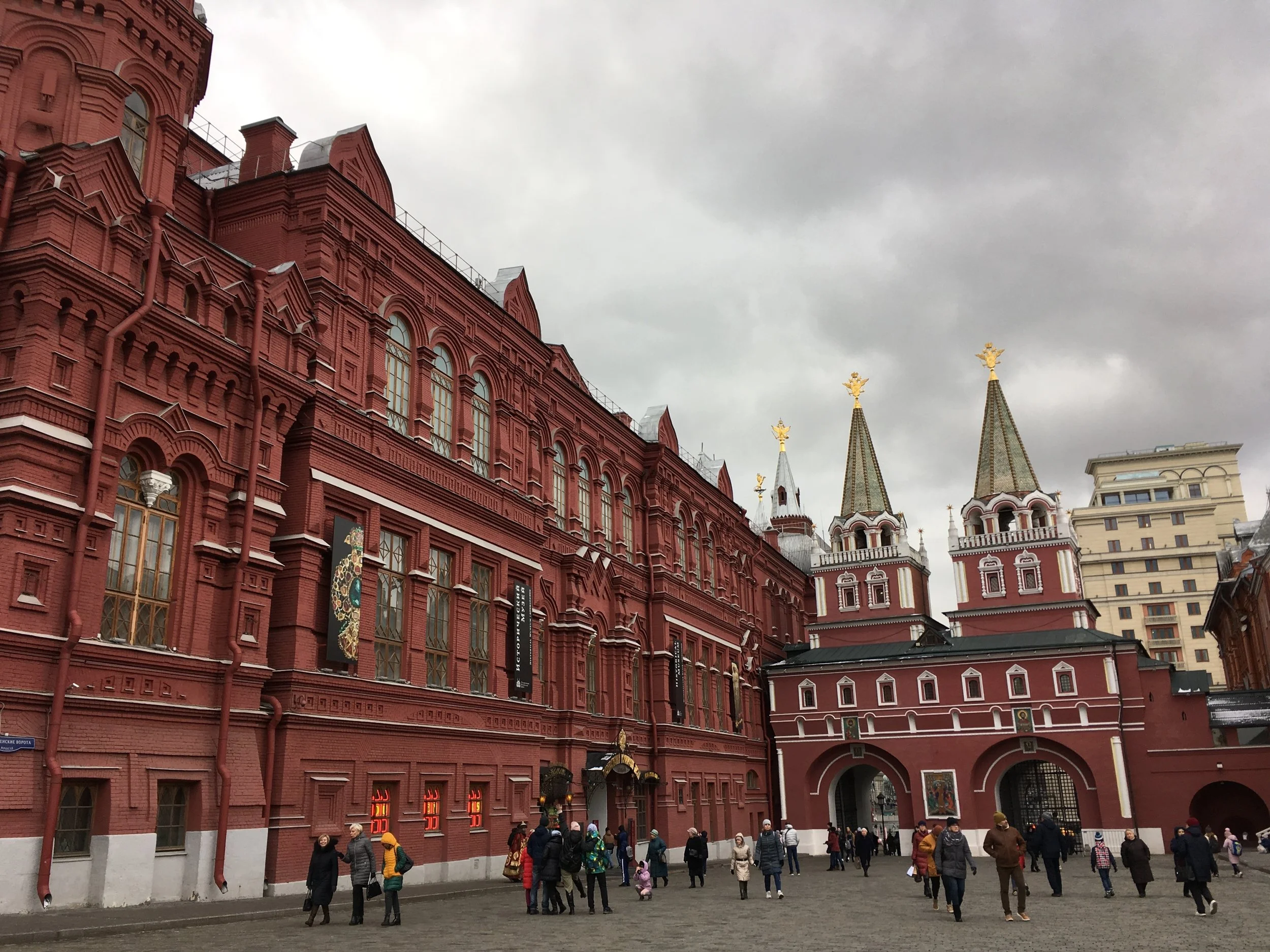A Day in the Life I: Russia
Photo taken by the author in Saint Petersburg
At a time when Russia and China play such a prevalent role in world politics, Staff Writer Nina Bugeja reveals what It was like to briefly live in these two countries before they came under the popular, Western microscope. Her column ‘A Day in the Life’ provides insight into her experiences in both countries.
Russia and China – two countries with rich historical cultures, an ever-present dominance in the media, and home to arguably two of the toughest languages for English native speakers to learn.
Having learned Mandarin and Russian from the age of fifteen, the time eventually came for me to put the first Russian phrase I ever learnt, ‘где ваша виза?’ (‘where is your visa?’) to the test. I was to go to Beijing and Saint Petersburg, spend 3 months there, study at a language school and live with a native family.
Never one for fast speeds or high heights (flashback to me age ten crying as I dangle one meter off a climbing wall) I am not an adrenaline junkie in the traditional sense, but I love escaping my comfort zone by experiencing different cultures. I went to Beijing for the first time in 2017 and then again in 2020 for what I had hoped to be a seven-month stint, but then Covid arrived and said ‘NO’. I remember looking at a TV in a gym in Chāo Yáng Qū (Chao Yang District) to see – BREAKING NEWS. That was it, the era of covid had begun. I was also able to go to Saint Petersburg in Russia twice, spending a total of four months there. Whilst in both these countries I kept a diary in which I noted anything I thought was funny, particularly culturally unique, or just shocking. In this article (and the next) I look back at my diaries and share some of my experiences from both Beijing and Saint Petersburg. First up is the city that introduced me to day drinking and ushankas (fur hats).
Saint Petersburg, nicknamed ‘The Venice of the North’, is one of the most beautiful cities I have ever visited. There are canals, buildings painted colours carefully selected to appear flattering in the overcast weather and even the people there are stunning. Well, the women specifically. There is a reason women were top of the list of reasons to emigrate to Russia in a video recently released by the Kremlin. This video has now been removed from YouTube. However, I soon discovered their trick - exercise (and good genes). The latter was going to be too difficult for me to do anything about, so I decided to focus on the former. One of the most popular classes at my gym was one called ‘Brazillian Butt’. For me, this very class embodied the sense of superficiality that I felt pervaded the city, but, admitting that I also wanted good glutes, I too signed up. It was pure pain! I am no stranger to exercise but the pain and breaking of a slight sweat as the gorgeous blonde next to you does each exercise so easily and with a full face of make-up is a moral bashing hard to recover from! As I was told on numerous occasions by different people however, no pain no gain. Harsh but true.
Whilst in Saint Petersburg I stayed with the most amazing family - Svetlana and Vadim, a husband and a wife who, you could tell, greatly loved and respected each other. She was a teacher who cooked the most incredible food, and he was a Chechen war veteran who would make me do a pull up each time before dinner. I got the message - if I wanted food, it was going to have to be earned. It was a literal manifestation of the Russian saying ‘пивка для рывка’ loosely translated as ‘drink beer to lift weights better’ (it works better in Russian). With every meal, breakfast included, also came a shot of vodka to ‘warm the soul’ –here I quote Vadim. Yes, it seems the rumours are true, Russians do like vodka.
Svetlana and Vadim weren’t very religious, but another woman I stayed with the first time I went to Saint Petersburg, Nastya, was. She would dedicate two hours every evening to reading the Bible, icons decorated the house and car and I often found myself helping out at the nearby Orthodox church. The only criteria was that my hair had to be covered and I had to wear a floor-length skirt. Orthodox churches are beautiful both on the outside with their colourful onion domes, and on the inside, ornately decorated with plates of gold and frames of silver. There appears a contradiction in Russian society, perhaps most evidently manifested its national literature over the decades by the likes of Pushkin, Blok and other poets. A disjuncture between religion and day-to-day life. Nastya for example was extremely religious in terms of the time she dedicated to going to church or reading the Bible, yet the second the Bible was closed, and her son returned from school, she would start shouting, swearing, blaspheming, using a lot of what one might deem “unreligious” language. It was something I found simultaneously baffling and amusing, she did too.
Saint Petersburg is a city of paradox. Its beautiful architecture is contrasted by its chronically overcast weather. A red traffic light to a taxi driver doesn’t mean ‘slow down and stop’, instead it means ‘speed up and see if you can just make it’. Russians who appear cold and distant, unaccustomed to smiling in photos (this is very Russian) are funny, warm and welcoming, at least the ones I encountered. It is these paradoxes that, to me, make the city such an enjoyable place to live. Beijing, however, took paradox to a whole new level.
